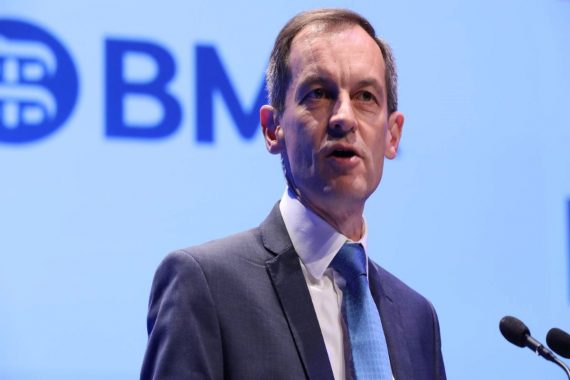Weight management DES ‘fundamentally flawed’, says BMA in scathing statement

The new weight management DES is ‘fundamentally flawed’, both clinically and practically, the BMA has argued.
NHS England announced the details of the service, and an attached £20m funding package, yesterday.
But, in a scathing statement issued last night, the BMA has branded it as micromanagement which fails to put trust in GP and will make little difference to the country’s obesity crisis.
Dr Richard Vautrey, BMA GP committee chair, said: ‘Whilst the BMA believes that it is vitally important as a nation much more is done to help and support people with weight management – and particularly for government to take greater steps to address the underlying issues behind rising obesity levels – today’s announced enhanced service is fundamentally flawed, will have little to no impact in tackling the problem, and will present significant rise in workload at a time when practices are at breaking point.’
Dr Vautrey noted that ‘obesity can have a devastating impact on people, their health and ultimately their way of life’ and said ‘GPs want to be able to support their patients in the best way possible’.
But he added: ‘However, this ES is not the right way to do it. It is clinically flawed, overly bureaucratic and shows a lack of trust in GPs and their teams to do what is best for patients.
‘It tries to micromanage practices and creates a laborious tick-box exercise, the very limited funding for which does not match up with the work involved, with a cap on funding that could limit people who could benefit from it.’
He also argued that there was ‘no use having such a scheme in general practice when receiving specialist services are so patchy across the country, with many having long waiting times or being already full’.
Ultimately, he said, ‘practices need to be given the trust and flexibility to do what they can within resource, time and staffing constraints to meet the needs of their patients, based on their expert knowledge of their communities’.
Dr Vautrey also commented on this week’s announcement of a new £30m long Covid enhanced service, saying it has ‘more merit’.
He said: ‘The enhanced service focusing on long-Covid follows our lobbying and has more merit, providing much-needed additional funding to support practices in this crucially important and developing area.
‘Long-Covid is becoming a serious problem within our communities – something practices are already feeling – and we note that funding is available for practices to help with the management of patients living with the debilitating after-effects of the virus.’
But he stressed that the programme ‘must be kept under review’, ‘with more resources provided to keep up with demand as necessary, while ensuring additional, specialist support for patients with long-Covid is available beyond general practice’.
And he argued that the Government and NHS England must also ‘urgently’ address the ‘problems facing increasing numbers of healthcare workers in general practice who themselves have long-Covid’.
‘It’s imperative that [they] provide occupational health access and financial support for those in general practice to avoid losing valuable and much needed colleagues from the workforce,’ Dr Vautrey said.
‘It is unacceptable that over a year since the pandemic began, frontline healthcare workers continue to have to make the case for such basic requirements from the Government.’
Practices that sign up to the NHS Digital Weight Management Service will be paid £11.50 per patient living with obesity who is referred to eligible weight management services.
From July, it should become the default for obese patients with hypertension and or diabetes and will have capacity for up to 270,000 patients in this financial year, NHS England said.
GPs can also refer to local authority funded tier 2 weight management services, the NHS Diabetes Prevention Programme or tier 3 or 4 services.
Discussions around introducing an enhanced service on weight management had already been mooted when the Government announced £70m for tackling obesity back in March.
The Government’s obesity strategy, published last July, expressed a wish for obesity indicators to be added to the QOF this year.
Pulse October survey
Take our July 2025 survey to potentially win £1.000 worth of tokens

Visit Pulse Reference for details on 140 symptoms, including easily searchable symptoms and categories, offering you a free platform to check symptoms and receive potential diagnoses during consultations.
Related Articles
READERS' COMMENTS [3]
Please note, only GPs are permitted to add comments to articles










Collect all their ”eat out to help out vouchers” would be a good start
Coca-cola, McDonalds, Poundland, Iceland, Carlsberg, Deliveroo, Weatherspoons, Uber Eats, BOGOF, Smirnoff, Unilever, Nestle, PepsiCo, KraftHeinz, Danone, Kellogs…
Versus: You. In 10 minutes.
https://www.businessinsider.com/10-companies-control-the-food-industry-2016-9?r=US&IR=T
Am I missing something here? Granted, this DES will have ZERO impact on obesity rates, but if I’m reading this correctly we have to…..
1- weigh ‘em
2- refer ‘em
3- claim £11.50 per patient.
(The catch may well be a 5 page referral form requiring vital information such as inside leg measurement, religion, preferred pronouns etc, in which case forget it)
Naturally there will be no service to refer them to, and even if there is it will be swamped in weeks with infinite waiting times, but this isn’t our problem.
Yes, this is a monumental waste of our time and (already bankrupt) public finances, but for GPs it would appear to be money for old rope.